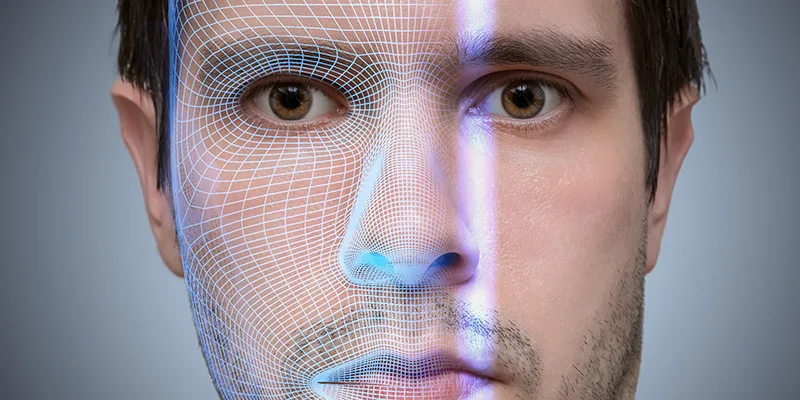Authors
Key takeaways
- Tennessee has enacted the Ensuring Likeness, Voice and Image Security (ELVIS) Act, making it the first state to pass a law aimed at protecting artists from generative AI services that enable impersonation, such as deepfakes
- The ELVIS Act, effective July 1, 2024, updates Tennessee’s right of publicity law by holding liable those who create content containing a simulated voice or likeness without consent, as well as those who develop and provide tools that generate them
- Given the increased popularity of GenAI in content creation, we can expect to see other states and federal regulations follow Tennessee’s lead
Generative AI (GenAI) is disrupting content industries, giving rise to both opportunities and challenges as creators attempt to leverage the technology to generate content. A recent development flooding streaming services and social media is the use of AI-synthesized voices and images (i.e., deepfakes) to mimic popular artists and celebrities, raising concerns about the right of publicity (ROP) and copyright protections of the original artists, songwriters and other music industry professionals.
Tennessee became the first state to pass legislation protecting the voices of artists from GenAI cloning and services that enable impersonation. Below, we highlight some noteworthy aspects of the recent updates to Tennessee’s law, which goes into effect July 1, 2024.
The ELVIS Act updates Tennessee’s right of publicity law by granting individuals rights over their voice in any medium and in any manner, “regardless of whether the sound contains the actual voice or a simulation of the voice of the individual.”
In addition to imposing civil liability on any on any end user who, without prior consent or authorization, knowingly creates or publishes an individual’s name, image, voice or likeness for commercial purposes, such as advertising goods or services, fundraising or soliciting donations, the ELVIS Act imposes liability on certain technology providers. Specifically, the ELVIS Act extends liability to the providers and developers of technology where the primary purpose of the technology “is the production of a particular, identifiable individual’s photograph, voice, or likeness, with knowledge that distributing, transmitting, or otherwise making available the photograph, voice, or likeness was not authorized by the individual.”
The revised Tennessee law also includes a broader standard for holding the owners or employees of advertising media (e.g., newspapers, magazines, radio and television stations, billboards and transit ads) liable by encompassing situations where they not only had knowledge of the unauthorized use but also “reasonably should have known of the unauthorized use.”
Additionally, the ELVIS Act modifies the “fair use” exemption, specifying that use is permissible “to the extent protected by the First Amendment to the United States Constitution,” including for purposes of comment, criticism, scholarship, satire or parody, as well as fleeting or incidental uses and providing clearer guidelines for content creators and users regarding the limits of such use. This modification can reduce ambiguity around the permissible use of copyrighted materials and related boundaries going forward. We discussed additional considerations related to right of publicity and copyright issues as they relate to GenAI in Reed Smith’s Entertainment & Media Guide to AI.
The revised Tennessee law also empowers artists to personally bring an action even where the individual has entered an exclusive agreement as a recording artist or to distribute the individual’s sound recordings. The legislation permits a court to also issue an injunction, and to destroy or impound materials for violations to prevent or restrain unauthorized use. For violations, a court can also award actual damages, including triple the amount entitled under the Act, along with reasonable attorneys’ fees.
What are the other impacts of the law?
While Tennessee is the first state to update its ROP law to protect artists from AI-generated soundalikes, given the increased popularity of GenAI in content creation, we can expect to see other states follow Tennessee’s lead. Several states, including California, Illinois and Kentucky, have proposed bills to address AI-generated simulations of an individual’s voice or likeness.
Congress also continues to push legislation in this space, recently holding a subcommittee hearing on the Nurture Originals, Foster Art, and Keep Entertainment Safe (NO FAKES) Act, which is aimed at protecting individuals’ voices, images and likenesses from deepfakes and other digital replicas. Similar to the ELVIS Act, the proposed bipartisan legislation would create civil liability for producing nonconsensual digital replicas of individuals in audiovisual works or sound recordings, with exceptions based on First Amendment protections.
Similarly, the FTC proposed revisions to its Government and Business Impersonation Rule, which would expand the rule to prohibit impersonation of individuals and declare it unfair and deceptive practice for companies, such as a GenAI platform, to provide goods or services when they know or have reason to know that the goods or services are being used to deceive consumers through impersonation.
As states and Congress continue to grapple with how to regulate GenAI, there are a few actions companies can take to avoid potentially facing steep monetary and court-ordered penalties associated with violations of the ELVIS Act.
- Continue to review content that is generated by AI services for potential ROP violations, including being aware of the prompts used to generate content and the information used to train the model.
- When using GenAI to create content-contained simulated voice and likeness, ensure the proper rights have been secured from individuals as necessary, including for unique aspects of GenAI technology.
- When using or publishing GenAI-created content, implement contractual and procedural protections to confirm that permissions are secured.
- Review GenAI technology to ensure you understand the intended use and market use of the technology.
Client Alert 2024-101
Authors
